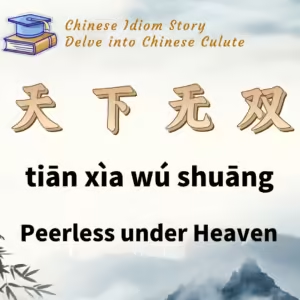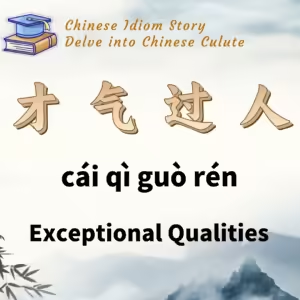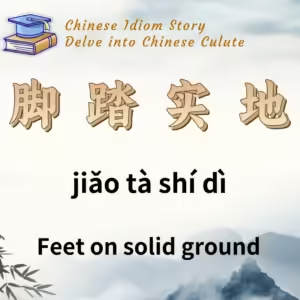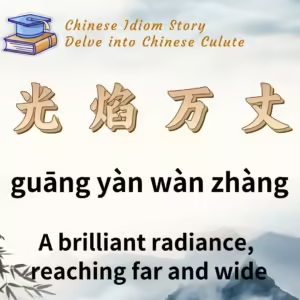
Chinese Idiom: 天下无双 (Tian Xia Wu Shuang)
English Translation: Peerless under Heaven
pīn yīn: tiān xìa wú shuāng
Idiom Meaning: This idiom describes someone who is outstanding, exceptional, and unparalleled.
Historical Source: Records of the Grand Historian (《史记·李将军列传》)
Idiom Story:
Li Guang was a renowned general during the Western Han Dynasty. His talents and reputation, as well as his contributions to the Han Dynasty, far surpassed those of his contemporaries. However, his fate was unfortunate; he never received significant recognition or promotion from the Han court and was eventually forced to commit suicide.
Sima Qian’s Records of the Grand Historian praises Li Guang’s bravery and intelligence in battle, highlighting his ability to endure hardship alongside his troops. It also laments his lack of recognition by the Han Dynasty, which prevented him from fully showcasing his military skills. Despite engaging in over seventy battles and achieving significant military feats, Li Guang’s talents were not acknowledged, leading to his tragic end.
In his early years, Li Guang served as a guard for Emperor Wen of Han. He often accompanied the emperor on expeditions and was always at the forefront, bravely facing challenges such as deep ravines, obstacles, and fierce beasts. Emperor Wen admired Li Guang’s abilities and once remarked, “What a pity! If you had lived during the time of Gaozu (referring to Liu Bang), you would have been given a title and recognized for your achievements!”
So, why was Li Guang not promoted? It wasn’t due to a lack of need for military leaders at the time. The northern borders of the Han Dynasty were frequently troubled by the Xiongnu, and internal regional lords were rebellious. Emperor Wen, before his death, advised his successor, Liu Qi (Emperor Jing), to appoint Zhou Yafu in times of crisis. After Emperor Wen’s death three years later (in the third year of Emperor Jing’s reign, 154 BC), a major rebellion in the Wu and Chu regions erupted. Emperor Jing did not use Li Guang but instead relied on Zhou Yafu to suppress the rebellion. This shows that Emperor Wen did not believe the empire was truly peaceful; he simply could not promote Li Guang. Li Guang was a descendant of the Qin general Li Xin, while Zhou Yafu was the son of the Han court official Zhou Bo. In a feudal society where nepotism and favoritism were common, it was inevitable that Zhou Yafu would be favored over Li Guang.
The Records of the Grand Historian continues:
“Upon Emperor Jing’s ascension, Li Guang was appointed as the Governor of Shanggu. The Xiongnu attacked frequently, and a subordinate named Gongsun Kunxie once tearfully told Emperor Jing, ‘Li Guang’s talents are unmatched under Heaven, but he is overconfident in his abilities and often engages in direct combat with the Xiongnu. I fear he will be killed in action.’ Nevertheless, he was only assigned to a border region, Shanggu, as governor.”
Here, “shanggu” refers to a region in modern-day northwestern Hebei Province, and “xiongnu” denotes the nomadic invaders. The message is that despite Li Guang’s exceptional skills, he was not given significant duties and was relegated to a border post, reflecting the political dynamics and biases of the time.






